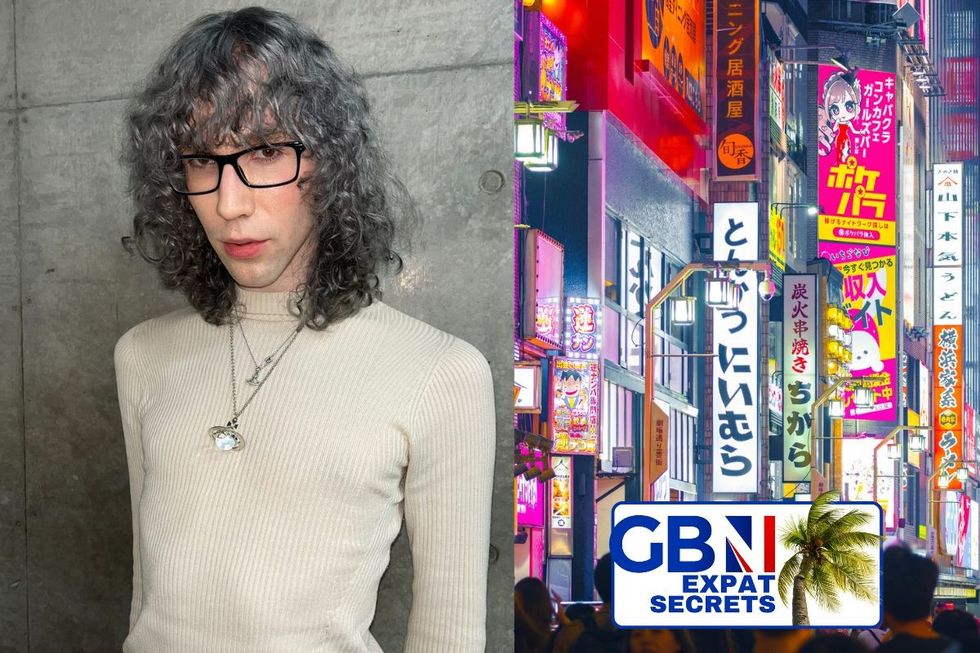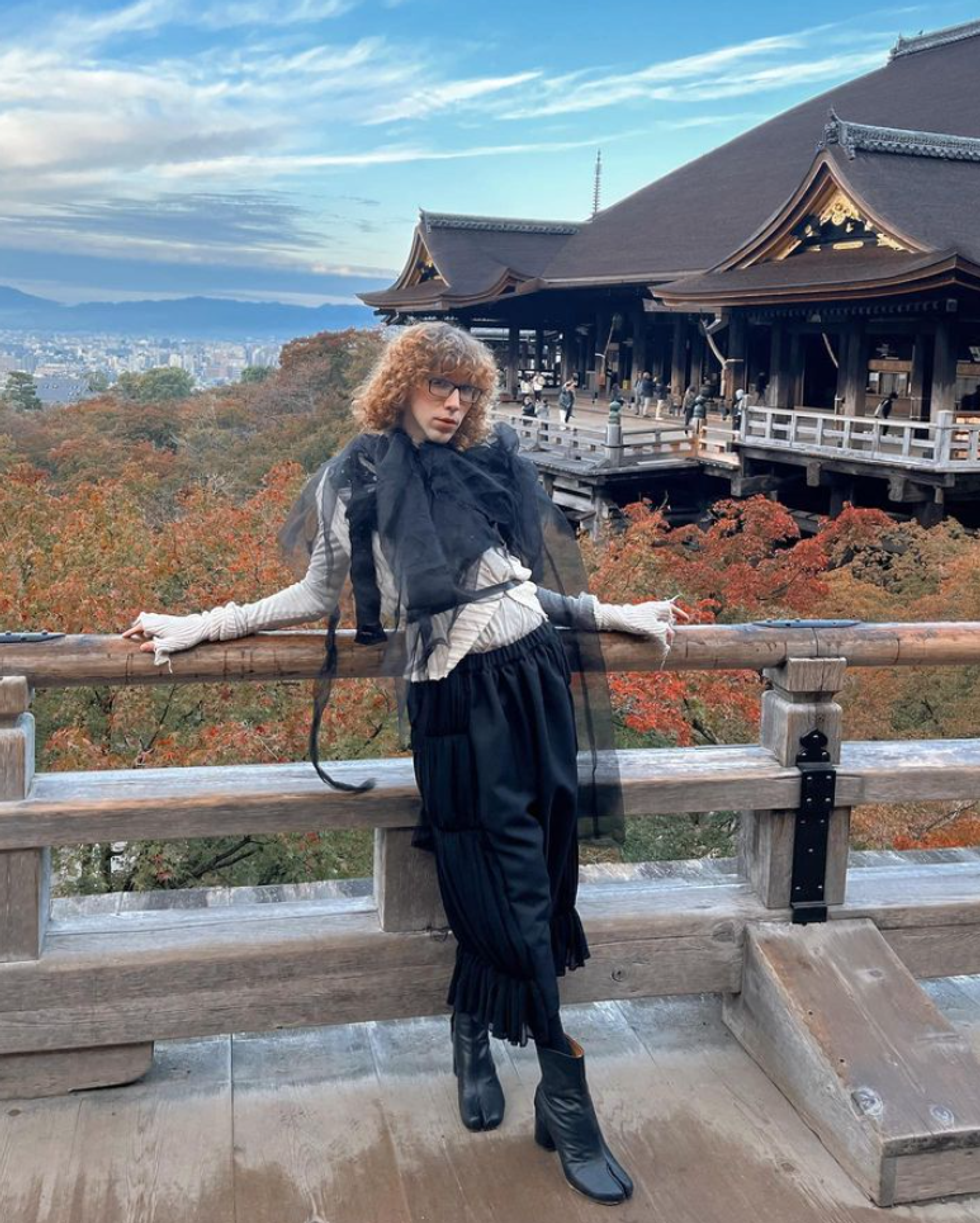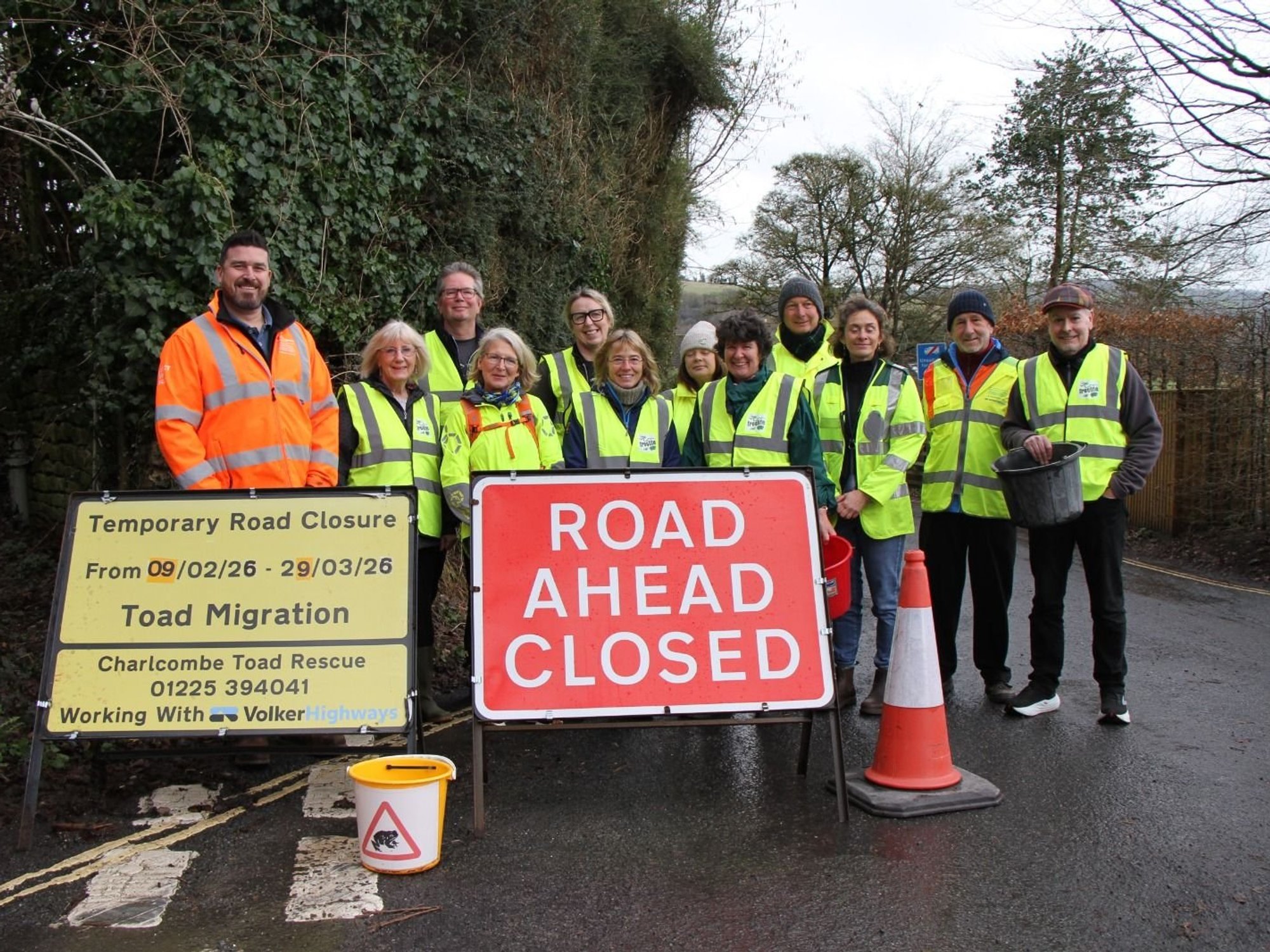GBN expat secrets - Japan: 'It's an amazing blend of old and new - you're only a few minutes away from an ancient temple or a robot cafe'

GB News is talking to expats across Europe and the world who have exclusively revealed the best places to live, tips and tricks for moving abroad, and the potential pitfalls to avoid. This week, a young expat in Tokyo, Japan shared why he'll definitely move back there in his 60s
Don't Miss
Most Read
Elliot Hicks relocated to Tokyo, Japan last year, and resides in the Shinjuku area at the heart of the city.
He spoke exclusively to GB News about life in the capital, the difficulties of finding a job, and why Tokyo is "the place to be".
Elliot currently works as an English conversation teacher, which is the perfect role for an expat with limited Japanese proficiency.
He told GB News: "You're actively encouraged not to speak Japanese because you want your students to be really immersed. It's one of the main reasons I picked this job."
The expat warned that it's "extremely hard" to get a job in Japan if you don't speak the language, to the point that your options are "very limited".
He had hoped that he'd find a job at Tokyo Disneyland, or a restaurant or cafe, but was very mistaken.

An expat in Japan told GB News all about his new life
|Elliot Hicks / GETTY IMAGES
The language barrier is something Elliot has struggled with. Asked whether the locals generally speak English, the expat said: "Not at all."
Getting around can prove difficult, but living in Japan as a non-speaker is certainly not impossible.
He said: "It's very challenging but you can do it. I've got a lot of tools at my disposal which help."
For English speakers considering the move to Japan, Google Translate is an absolute must - and the camera feature is essential.
But while Elliot has been able to get around with Google Translate - plus six months of Duolingo - making friends with Japanese locals has been a challenge.
"I can never have a solid conversation, it's all, 'Hi, how are you?'," he admitted.
He's had no trouble making friends with fellow expats though. He advised people moving to a new country to seek out events where like-minded people may be.
He told them to "find the niche circle that you belong in", explaining that he found his core friendship group at a weekly event called Tokyo Fashion.
With his British expat friends, Elliot can enjoy a taste of home. He told GB News: "The other day we went for a Sunday roast. It was actually very delicious - just like a Toby Carvery. The place was called Good Heavens."
But despite this little reminder of home, Japan couldn't be much more different from the UK, and Elliot offered some words of advice for expats.
He said: "It's very difficult to get an apartment unless you go through an agency that specialises in people who move from abroad.
"My biggest piece of advice for moving to Japan is to plan everything in advance, and learn a few crucial places because Japan is so varied. The north is cold and the south is hot - not exclusively but usually."
Japan has something for everyone, but for Elliot, "Tokyo is the place to be".
Golden Gai is a must-visit if you're drinking in Tokyo. It's a mismatched selection of tiny bars - often thematic, think Anime or Western - that only fit around five or six visitors at a time.
According to Elliot, the most important part of Tokyo is Shibuya, which the expat calls the "hub of the city".
Shinjuku is a "really fun" area with plenty of "hustle and bustle", and Akihabara is well worth a visit too, with its incredible Anime fashion.
Elliot added: "I think one of the most unique things in Tokyo is a cafe where you're served by robots, and these robots are controlled by people with disabilities or those who aren't able to leave their homes."
Indeed, at DAWN, the Avatar Robot Cafe, the mission is to "give all the possibility to stay connected with society".
Elliot said: "Not only is it like a vision for the future, but it's also really inclusive and a gorgeous way to support those people."
Technology and eateries are expertly infused, and Tokyo is brimming with innovative places to try. Nestled in Shibuya is Henn na Cafe, where the barista is a robot. Just down the road at Pepper PARLOR, robots work alongside human workers to provide fun service and even entertainment.
As for Japan as a whole, the expat described it as an "amazing blend of old and new". He explained: "You'll go and see an ancient temple that's thousands of years old, and then you'll walk five minutes down the road and end up at a ramen restaurant where robots bring you your ramen, or there's a hologram of a cat on a billboard or something. It's just so crazy. It's amazing."
If you don't want to move to Japan, Elliot insists you go for a holiday. Calling it a "tourist paradise", he said: "It's just so convenient. You have vending machines where you can buy meals, ice cream, whatever. It's so easy to do everything here."
Convenience stores are a major part of Japanese culture too. There's 7-Eleven, Family Mart, and Lawson.
Elliot said: "I love them, they truly are the centre of the Japanese world - I even go there to pay my water bills. And while I'm at it, I can get a cheap pizza or some Nigiri for lunch."
While of course, Japan is home to some lavish, luxurious restaurants that come with a hefty price tag, it's very possible to eat on the cheap here.
Referring to the conveyor belt restaurant chains across the country, Elliot said: "You can eat a lot because it's not expensive. One plate of sushi might cost £1."
As for the drinking culture, Elliot said: "A lot of the time I feel like Japan encourages drinking and partying culture." The country has no laws banning public alcohol consumption.
While Elliot is only 26-years-old and far from retirement, he believes that Japan would be the perfect place to retire one day.
Tokyo can be rather hectic - the Shibuya Crossing is the busiest in the world - but some pockets of the city are well suited to those in their 50s, 60s and beyond.
LATEST DEVELOPMENTS

'Everything in Japan is beautiful'
|Elliot Hicks
The expat advised: "Ginza is the perfect place for this age group because it's nice and relaxed and it has the modern charms of Tokyo without being too exhausting."
For expats after something more traditional, Kyoto, which brims with temples and ancient architecture galore, is the place to be.
Elliot is also a big fan of Naoshima, "an island that has art all around it". He added: "You can hire electric bikes and cycle around the island.
"I think Japan would be a lovely place to retire. Firstly, everyone in Japan is so friendly and so sweet. People are calm and pleasant, and even though I don't speak Japanese, I have always felt safe, happy and relaxed around Japanese people.
"Plus, everything in Japan is beautiful. The people take such good care to keep it clean, which means it's such a nice place to live."
Elliot gave a nod to the safety and low crime rates in Japan, stating: "I have let my guard down here, which is the most refreshing thing ever, and probably one of the reasons I'd retire here. I can feel totally relaxed in the knowledge that nobody is going to try to rob me or attack me."
He concluded that whether it's for a holiday or a large chunk of your life, "everyone should really come to Japan".
"It's such a unique place," he said, "it's hard to describe unless you've been there. I really do think that everyone should go at least once in their lifetime. It's pretty amazing."
Moving to Japan
What you need to know
Japan is a beautiful country and one that many Britons are keen to explore. For those who want to live in Japan, the Foreign, Commonwealth and Development Office (FDCO) has a comprehensive guide on visas and residency, healthcare and medicine, working or studying, tax, benefits, pensions and accommodation, among other necessary topics, on GOV.UK.
Britons wanting to live in Japan have been advised to check Japan's entry requirements in the FCDO's travel advice. However, the information is provided as a guide only, and Britons should seek definitive information from the Japanese authorities.
They were told: "If you have a ‘British citizen’ passport, you can travel to Japan for tourism or business for up to 90 days. You will get a visa in your passport on arrival, and you do not need to apply before you travel. The Japanese immigration authorities may extend your visa by another 90 days at their discretion. You will need to apply for an extension."
If you intend to stay over 90 days, you will need to obtain a visa from your nearest Japanese Embassy/Consulate prior to your travel to Japan.
The Government warned Britons: "If you have another type of British passport, you must get a visa.
"To stay longer (to work or study, for or for other reasons), you must meet the Japanese government’s entry requirements. Check which type of visa or work permit you need with the Japanese Embassy in the UK.
"It is illegal to work in Japan without the correct visa however informal or temporary the work. If you overstay your permission to remain in Japan, you risk arrest, detention and a heavy fine.
"For residency information, see the Japanese Immigration Services Agency website and living in Japan."
Visa Guide offered some information on retiring in Japan. The experts advised that because Japan does not issue retirement visas, those who hope to retire there should start with a long-stay visa and then apply for permanent residence after this period.
As for acquiring accommodation in Japan, Britons were warned: "There are no legal restrictions for foreigners renting or buying a property in Japan. However, the process and requirements can be complicated. If you are planning on buying a property, please make sure to reach out for legal advice.
"If a property is privately owned, you can be refused renting or buying accommodation based on your race, sexuality or nationality."
GOV.UK also provides information on driving in Japan, including how to drive legally and apply for a Japanese driving license if you're staying for longer than one year.
Britons thinking of relocating were issued a word of warning about the natural disasters that Japan is "prone to". These include earthquakes, tsunamis, volcanic eruptions and typhoons.
GOV.UK reads: "It is essential you prepare well and know how to react when one occurs. Check our travel advice page for more information."
Recommended places for retirees
- Tokyo
- Kyoto
- Nagoya
- Okinawa
Why Britons choose to live in Japan
- Varied and beautiful - there's something for everyone
- Delicious cuisine
- Clean
- Excellent public transportation - and it's never late
- Bullet trains make it easy to get around Japan quickly and easily
- Very safe and low crime rates
- Endless entertainment options - Tokyo Disneyland, themed cafes, anime and manga districts
- Friendly, welcoming people
Possible pitfalls
- Can be difficult to find accommodation in big cities
- High cost of living
- Vegan options are extremely limited
- Food allergies and dietary requirements are not always catered for
- Language barrier can be a big obstacle when trying to find a job or making friends in your new home
- Prone to earthquakes











